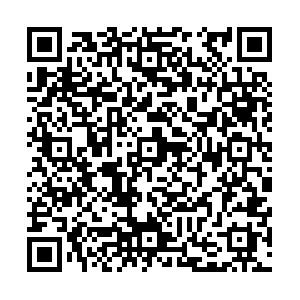The Italian Sinologist and Mathematician Giovanni Vacca in China: A Contribution to the Understanding of Chinese Sciences in the West
-
摘要: 1907年,意大利数学家乔万尼·瓦卡(Giovanni Vacca)从热那亚出发,前往中国进行了一次深具历史意义的科学探索之旅,旨在收集中国古代数学文献、考察中西科学交流的历史,并呈现一个真实且未被西方全面理解的中国。在这为期两年的旅程(1907—1908年)中,瓦卡不仅深入探讨了中国数学的独特性,还对《易经》中的二进制系统进行了研究,并考察了古代中国科学技术的发展过程。他通过大量实地考察和文献收集,获得了丰富的第一手资料,不仅拓宽了西方对中国科学的认知,也为中意两国的文化交流留下了珍贵的文献资源。2016年,瓦卡的旅行日记及其收集的相关资料在意大利编辑出版,为当代学者提供了重要的历史参考文献。本研究不仅介绍了瓦卡此次中国之行的学术成果和他在西方汉学界的学术地位,还深入分析了他对于中国科学为何未能在古代得到充分发展的个人见解。瓦卡认为,中国科学的发展受到地理、历史和文化等多重因素的制约,尤其缺乏与外界的有效互动交流,这在一定程度上限制了中国科学的创新和传播。然而,瓦卡也高度评价了中国传统科学在天文学、数学和医学领域的独特贡献,认为这些领域体现了中国文化的深厚积淀和独特智慧。此外,瓦卡提出,中国的科学发展道路虽然与西方不同,但正是这种独特性,使得中国科学能够在保持自身特色的同时,展现出与西方科学互补的潜力。作为西方了解中国科学的桥梁,瓦卡的研究为后续汉学研究及跨文化科学交流奠定了坚实的基础。他的工作不仅加深了中西科学认知的理解,也为后世提供了有关古代科学思想与方法的宝贵视角。Abstract: In 1907, Italian mathematician Giovanni Vacca undertook a journey of profound historical significance from Genoa to China, with the aim of collecting ancient Chinese mathematical texts, investigating the history of Sino-Western scientific exchange, and presenting a more authentic and nuanced image of China, often misunderstood in the West. Over the course of this two-year expedition (1907–1908), Vacca explored the unique characteristics of Chinese mathematics, conducted meticulous research on the binary system within the I Ching (Book of Changes), and studied the development of ancient Chinese science and technology. Through comprehensive fieldwork and the collection of primary sources, he amassed a trove of firsthand materials, substantially enhancing Western perspectives on Chinese science and laying a valuable foundation for Sino-Italian cultural exchange.In 2016, Vacca’s travel journals and collected documents were published in Italy, providing contemporary scholars with an indispensable historical resource. This study not only highlights Vacca’s academic accomplishments and his position within Western Sinology, but also offers a thorough examination of his views on the constraints that limited scientific advancement in ancient China. Vacca contended that China’s scientific progress was hindered by a combination of geographic, historical, and cultural factors, most notably a lack of sustained interaction with external sources, which limited both innovation and the spread of scientific ideas. Yet he highly esteemed the unique contributions of traditional Chinese science, particularly in astronomy, mathematics, and medicine, which he saw as expressions of China’s rich cultural heritage and intellectual tradition.Vacca further suggested that while Chinese science diverged from the Western trajectory, this divergence allowed it to preserve distinct features that held complementary potential to Western scientific models. Serving as a crucial bridge between Western and Chinese scientific understanding, Vacca’s research established a solid foundation for future Sinological scholarship and intercultural scientific discourse, offering enduring insights into ancient scientific philosophy and methodologies.
-
[1] . 戴爱礼(D’Arelli)《中华文明——十七世纪的中国与强盛的欧洲》,《国家社会就业通讯》(第十二期),第6册,2008年5月。 [2] . 福斯科洛 (U. Foscolo)《中国刑法》,收于《福斯科洛文集》,卡勒(Luigi Carrer)主编,威尼斯,1842年。 [3] . 狄霞娜 (T. Lioi)《瓦卡中国之行手记(1907—1908)》,金驴出版社,罗马,2016年,第4-6页。 [4] . 罗埃罗(Silvia Roero)《皮亚诺和他的数学流》,《逻辑研究与跨语言》,收入《2008年10月6至7日都灵国际研究学术会议》论文集,都灵,2010年。 [5] . 瓦卡(G. Vacca)《公元前四世纪的两位中国天文学家和他们的星宿图》,《罗马天文观察年历》(第十期),1934年,第81-85页。 [6] . 瓦卡(G. Vacca)《中国年历通鉴》,《罗马天文观察年历》,1930年,第67-76页。 [7] . 瓦卡(G. Vacca)《远东科学》,SIPS论文集(1911),罗马,1912年,第81-97页。 [8] . 瓦卡(G. Vacca)《古代中国的数学研究》,《数学科学史与数学家小传》(十月刊,十一月刊,十二月刊),1905年,第97-102页。 [9] . 瓦卡(G. Vacca)《二进制记数小史》,意大利猞猁之眼国家科学院出版社,罗马,1904年。 -

 点击查看大图
点击查看大图
计量
- 文章访问数: 268
- HTML全文浏览量: 64
- PDF下载量: 14
- 被引次数: 0



 下载:
下载:

